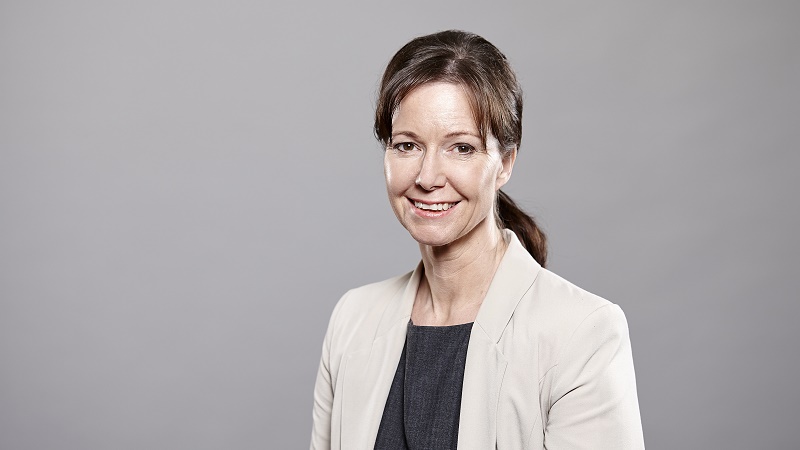The cult of Neil Woodford has raised questions of whether a quant-based approach to fund selection might help navigate behavioural biases.
The star manager’s pull was such that when he left Invesco the firm saw billions of pounds of outflows and money poured into his new venture. Despite Woodford Equity Income’s style drift since launch and disappointing performance hordes of loyal investors chose to stick by him and are currently trapped in his £3.5bn suspended fund.
Clever Adviser managing director Nicola Cornish (pictured) says the Woodford incident makes it clear that investors are making damaging decisions to stay in actively managed funds for too long due to human biases and brand loyalty.
The Chester-based fintech company uses a quantitative fund screening system or ‘Clever engine’ to make fund recommendations, based on criteria like alpha, beta and volatility, for clients of IFAs and its own MPS service. If a fund drops below the threshold score calculated for each sector, the system recommends a higher scoring fund to switch into.
IFAs receive an email each month with suggested changes to pass along to clients but the client has the final say on whether or not to accept them.
Cornish says that “very few” IFAs argue against the system’s recommendations. She says she never had to fight with any IFA over Woodford because his equity income fund never ranked on the system.
“After a fund breaches that defined score, we don’t think about it; we don’t speak to the manager groups about it; we don’t listen to the noise. In the industry, it’s all about the numbers, and the numbers don’t lie.”
Not selecting Woodford far from conclusive
Transparency Task Force ambassador Jon ‘JB’ Beckett says touting a quant-based model for not having selected Woodford’s fund is not in itself a ringing endorsement.
“Many non-quant driven ratings and fund analysts downgraded or sold out of Woodford some time ago,” says Beckett. “I downgraded Woodford in 2013 on structural issues that were belying strong returns. Not selecting recently does not tell you if the tool would have selected (or not) the manager 10 years ago. Statements of luck or circumstance should not be presented as skill or conclusive evidence.”
There’s no guarantee quant tools would not recommend clients switch into a star manager’s fund, Shore Financial Planning director Ben Yearsley notes.
“Quant systems pick what the quant system thinks is the best fund to buy and that might well be a star manager,” he says. “Now their quant system might well have come out and said that Woodford is not the one to buy but another quant system designed in a different way might have said something different.”
Divorced from emotion
Yearsley admits that being “divorced” from individual client portfolios has helped him avoid certain behavioural traps like being weary of selling at a loss. He has no interaction with Shore Financial Planning’s end clients, which are looked after by the firm’s four advisers, instead carrying out the fund selection and research process.
“Too many people trim their winners and don’t trim the losers. They do exactly the wrong thing. Whereas because I don’t see the individual clients’ pounds and pence, I think I’m immune from that and therefore I’m just looking to put the best long-term portfolios together.”
He moved clients out of Woodford Equity Income two years ago but “never got around” to ditching the fund from his own personal pot and is now like the hundreds of thousands of investors that are “stuck with it”.
“Now is that an emotional decision not to sell or is it just laziness on my part? You know, you could argue it’s both, whereas when it was for the clients, I didn’t have to think about it I was just selling for these reasons, that’s that.”
Star manager syndrome
Beckett agrees that “most advisers need help”.
“I wouldn’t say they are too emotional; more apathetic. They probably aim to do a good job of selecting the right manager but more often than not overestimate their ability to do so. They often lack the skill, experience, access or tools to make reliable fund selection decisions.”
Because of this Beckett says advisers are “susceptible to marketing and biases of over-familiarity,” giving way to the “star manager syndrome”, a weakness which asset managers are happy to exploit.
“I’m sure many will disagree but I have observed many IFAs in fund workshops and in conversation they soak up the information as presented by the fund manager and base their decision on that; rather than try to interrogate or investigate the prospective manager objectively alongside other managers.”
Encouraging short-termism
Quant tools have also come under fire for encouraging short-termism.
A distribution head from a mid-sized asset manager vented to Portfolio Adviser about their dealings with Clever whose process they said is at odds with the industry’s stated goal of long-term investing. They complained that the fintech firm has purchased loads of units in their funds only to sell them off six months later, which has been deeply frustrating to the managers for the impact on flow figures.
Clever’s Cornish says the Clever engine is “active but not overactive”. In a 10-sector portfolio there are on average six fund switches a year.
Historically the average length of holding period for a fund is 18 months but she says some funds have been held for as long as four years.
“We believe that investing should be done over a long-time horizon – however, there is a big difference between remaining invested in the markets and remaining invested in the same funds,” says Cornish.
Cornish says that most of the metrics within Clever’s process are based on 36 months of data which she says the system determined as the “optimal time” to measure fund performance after running tests across millions of data points. But she says this is not set in stone.
“We are agnostic to time periods used within our calculations. We consistently research and develop the system, so if further testing proved that different time periods would be more optimal, then we would go with the evidence.”
Different problem rather than a solution
Quant approaches also miss out on important details over the life of a fund, such as changes to style, the manager(s) or holdings, which means they are “fraught with risk,” says Beckett.
“Until such tools consider the transition cost and reduction in performance, as part of their recommendation, then they are a different problem to an existing problem rather than a solution.”
Yearsley agrees there is no substitution for sitting down with a fund manager to unpack their thought process.
“I have no issue with quant-based systems, but I still think you need to find out exactly what the manager’s doing and why he’s doing it, etc and a quant-based model can’t do that.”











